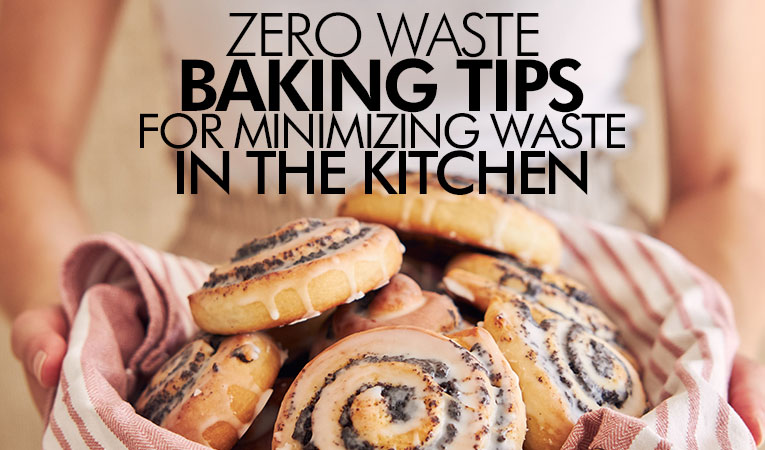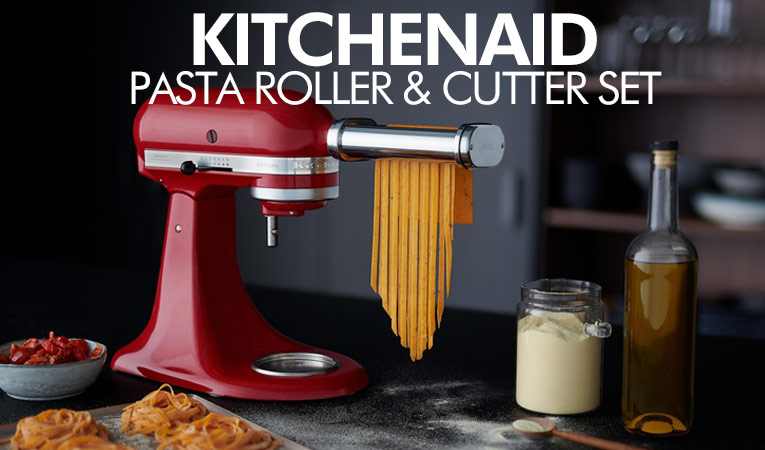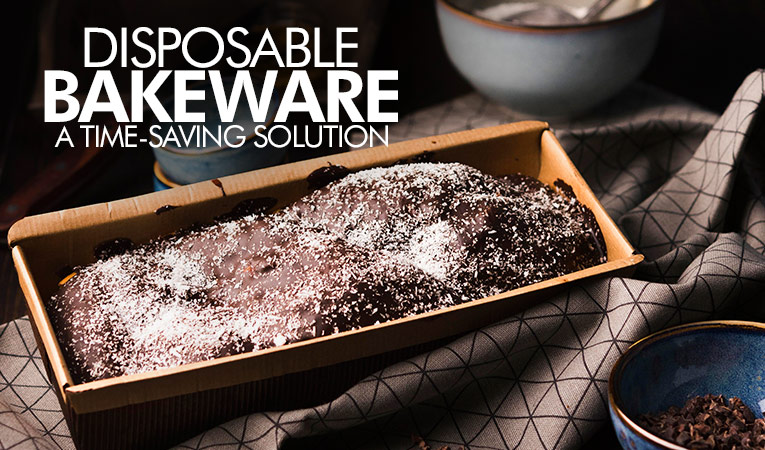Zero-Waste Baking: Tips for Minimizing Waste in the Kitchen
20-07-2023

Baking is a delightful art that allows us to create scrumptious treats and mouthwatering desserts. However, the baking process can also generate a considerable amount of waste, from food scraps to single-use packaging. As the world embraces sustainable practices, it's essential for bakers to adopt zero-waste principles and minimize their environmental impact. In this blog, we will explore various tips and techniques to practice zero-waste baking, reducing waste while still enjoying the pleasures of creating delectable baked goods.
- Plan Ahead: Proper planning is essential to minimize waste in your baking endeavors. Before you start baking, take some time to carefully plan your recipes and portion sizes. Consider the number of servings you need and adjust the recipe accordingly to avoid excess ingredients that might go to waste. By planning ahead, you can ensure that you use the right quantities of ingredients, reducing the likelihood of leftovers or unused items.
- Use Bulk Ingredients: When purchasing baking ingredients, opt for buying in bulk whenever possible. Buying in bulk reduces the amount of packaging waste generated compared to individual single-use packages. Additionally, bulk buying allows you to measure out the exact amount of ingredients needed for your recipes, avoiding unnecessary surplus. Many grocery stores offer bulk sections for common baking staples like flour, sugar, nuts, and dried fruits, making it easier to shop sustainably.
- Compost Food Scraps: Instead of discarding food scraps like fruit peels, vegetable trimmings, and eggshells, consider composting them. Composting is an eco-friendly way to manage food waste and turn it into nutrient-rich compost for your garden. Set up a compost bin in your backyard or explore community composting options. Not only will you reduce waste, but you'll also contribute to the cycle of nature by creating organic fertilizer for plants.
- Repurpose Leftovers: Leftover baked goods don't have to end up in the trash. Get creative and give them a delicious makeover! Transform stale bread into breadcrumbs or croutons, and leftover cake or muffins into cake pops or trifle. Repurposing leftovers not only minimizes waste but also introduces exciting new treats to enjoy. Your family and guests will appreciate your resourcefulness in creating delectable desserts from what might have been discarded.
- Choose Eco-Friendly Baking Tools: Opt for eco-friendly baking tools and utensils made from sustainable materials like paper, stainless steel, or silicone. These eco-conscious options are durable, long-lasting, and can replace single-use baking tools that contribute to waste. Look for reusable silicone baking mats, stainless steel measuring cups and spoons, and bamboo mixing spoons. Investing in eco-friendly baking tools is a small step that can make a significant difference in reducing your environmental impact.
- Reusable Baking Liners: Replace single-use parchment paper and aluminum foil with eco-friendly and reusable baking liners made from silicone or non-stick fabric. These liners offer a sustainable alternative that can be washed and used multiple times, reducing the amount of waste generated in your kitchen. By investing in reusable baking liners, you not only save money over time but also contribute to a greener baking practice.
- Make Your Own Baking Mixes: Take control of your baking ingredients and minimize waste by creating your own baking mixes. Measure out the dry ingredients of your favorite recipes and store them in reusable containers. This way, you avoid purchasing pre-packaged mixes with excess packaging and additives. Customizing your baking mixes allows you to use quality ingredients and reduces the environmental impact associated with disposable packaging.
- Reduce Food Packaging: Make conscious choices while shopping for baking ingredients. Opt for products with minimal packaging, or explore zero-waste grocery stores that promote the use of reusable containers for bulk items. Bringing your own containers and bags helps minimize the use of disposable packaging, contributing to a zero-waste lifestyle.
- Donate Surplus Baked Goods: If you find yourself with surplus baked goods, consider sharing the joy with others by donating them to local charities or food banks. This thoughtful act not only prevents food waste but also brings smiles to those in need. Check with local organizations about their food donation policies and guidelines to ensure your surplus treats reach those who can enjoy them.
- Proper Storage: Ensure your delicious baked goods stay fresh and last longer by adopting proper storage practices. Invest in airtight containers or glass jars to keep your treats well-preserved. Airtight containers prevent exposure to air and moisture, which can lead to premature spoilage. By avoiding single-use plastic wrap or disposable bags, you significantly reduce plastic waste in the kitchen and contribute to a more sustainable lifestyle. Remember to label your containers to easily identify the contents and their expiration dates, further minimizing food waste.
- Opt for Sustainable Decorations: Elevate the presentation of your baked goods with eco-friendly and sustainable decorations. Instead of relying on single-use plastic sprinkles or non-edible decorations, opt for natural alternatives such as fresh fruits or edible flowers. These not only add a pop of color and beauty to your treats but also provide a delightful and eco-conscious touch. Additionally, consider making homemade chocolate shavings from sustainably sourced chocolate bars, creating a unique and delectable decoration for your desserts.
- Mindful Clean-Up: Practice mindfulness during your post-baking clean-up routine. Be conscious of water usage by using only the necessary amount for cleaning and rinsing. Consider collecting and reusing excess water for other household tasks to minimize waste. Choose eco-friendly cleaning products that are free from harsh chemicals and harmful toxins, as they are better for both your health and the environment. Swap disposable cleaning wipes for reusable and washable cloths or sponges, reducing unnecessary waste and contributing to a greener home.
FAQs on Zero-Waste Baking:
As you embark on your journey to embrace sustainable baking practices, you may have questions about zero-waste baking and how to implement it in your kitchen. In this section, we address some common FAQs to help you better understand and adopt this eco-friendly approach to baking.
- What is zero-waste baking? Zero-waste baking is a mindful and environmentally conscious approach to baking that aims to minimize waste throughout the entire baking process. It involves making conscious choices to reduce, reuse, and repurpose ingredients and packaging, ultimately leaving little to no waste behind.
- How can I start with zero-waste baking? Starting with zero-waste baking is easier than you might think. Begin by taking stock of your current baking practices and identifying areas where waste can be reduced. Invest in reusable baking tools and containers, purchase ingredients in bulk to minimize packaging, and find creative ways to use food scraps and leftovers.
- Are there specific ingredients I should use for zero-waste baking? Yes, for zero-waste baking, prioritize using eco-friendly and sustainable ingredients. Opt for organic and locally sourced produce, as well as fair-trade and ethically sourced cocoa, sugar, and other baking essentials. Choosing ingredients with minimal or recyclable packaging can also significantly contribute to reducing waste.
- Can I still use traditional baking recipes for zero-waste baking? Absolutely! Zero-waste baking is about making conscious choices and modifications to traditional recipes. You can easily adapt your favorite recipes by substituting single-use items with reusable alternatives. For example, swap parchment paper with silicone baking mats and use washable cloth wraps instead of plastic wrap.
- How do I handle food waste in zero-waste baking? Handling food waste is a crucial aspect of zero-waste baking. Get creative with your food scraps and leftovers by repurposing them in other recipes. For instance, citrus peels can be dried and ground into powder for flavoring, and overripe bananas can be used in banana bread or smoothies.
- Is zero-waste baking time-consuming or complicated? While zero-waste baking may require some initial adjustments to your routine, it doesn't have to be time-consuming or complicated. Once you establish new habits and find efficient ways to reduce waste, it will become a natural part of your baking process.
- Can I still achieve delicious results with zero-waste baking? Absolutely! Zero-waste baking does not compromise the taste or quality of your baked goods. In fact, by using high-quality, eco-friendly ingredients, you can enhance the flavors of your creations while also contributing to a healthier planet.
- What can I do with leftover baked goods? Instead of discarding leftover baked goods, consider donating them to local shelters, food banks, or community organizations. Sharing your delicious treats can bring joy to others and reduce food waste.
Incorporating zero-waste practices into your baking routine is not only a fulfilling endeavor but also a meaningful contribution to a greener and more sustainable planet. By following these tips and techniques, you can reduce waste, conserve resources, and minimize your environmental impact while still enjoying the joys of baking.
Embrace the creativity that zero-waste baking offers, and explore the countless possibilities of repurposing food scraps and using reusable baking tools. Plan ahead, purchase locally and seasonally, and store your ingredients wisely to optimize your baking experience.
Remember, every small step counts. By making conscious choices in the kitchen, we can collectively create a positive impact on the environment. Zero-waste baking is more than just a trend; it is a lifestyle that embodies care and responsibility for our planet.
So, let's join the movement towards zero-waste baking and make a difference, one delicious treat at a time! Happy baking and happy sustainability! Together, we can inspire others to follow suit, and as a community of mindful bakers, we can contribute to a healthier, greener, and more eco-friendly world. Let your passion for baking be a force for positive change. Enjoy the journey of zero-waste baking, and savor every moment of creating delightful treats while nurturing our planet. The future of baking is brighter, more sustainable, and incredibly delicious!





